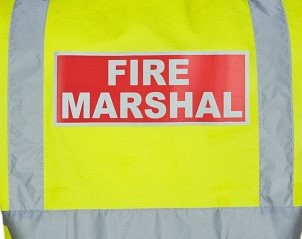Any Query :
Fire Marshal
Fire Marshal
Overview: This training program is designed to equip participants with the essential knowledge and skills to effectively perform their roles as Fire Marshals in accordance with OSHA guidelines. Through a combination of lectures, discussions, practical exercises, and assessments, participants will gain an understanding of fire safety standards, emergency response protocols, risk assessment, and fire prevention strategies to help create safer work environments.
Learning Objectives:
By the end of this course, participants will be able to:
- Understand and apply OSHA regulations related to fire safety and prevention.
- Identify potential fire hazards in the workplace and conduct effective risk assessments.
- Develop and implement fire prevention and emergency response plans.
- Communicate effectively with employees about fire safety protocols, evacuation procedures, and equipment usage.
- Conduct fire drills and training exercises to ensure preparedness.
- Perform inspections and audits of fire safety equipment and systems.
Course Outline:
Unit 1. Introduction to Fire Safety and OSHA Regulations
- Overview of OSHA regulations regarding fire safety (OSHA Standard 29 CFR 1910.39).
- Importance of fire safety in the workplace.
- Role and responsibilities of a Fire Marshal.
Unit 2. Fire Chemistry and Types of Fires
- Understanding fire behavior and the fire tetrahedron.
- Different classes of fires (A, B, C, D, K).
- Common fire sources and ignition points.
Unit 3. Risk Assessment and Hazard Identification
- Conducting fire risk assessments.
- Identifying potential fire hazards in various environments.
- Evaluating the effectiveness of existing fire safety measures.
Unit 4. Fire Prevention Strategies
- Best practices for fire prevention in the workplace.
- Developing and implementing a fire prevention plan.
- Training employees on fire hazards and safe practices.
Unit 5. Emergency Response and Evacuation Planning
- Developing an effective emergency response plan.
- Creating evacuation routes and procedures.
- Roles and responsibilities of employees during an emergency.
Unit 6. Fire Safety Equipment and Maintenance
- Overview of fire safety equipment (extinguishers, alarms, sprinklers, etc.).
- How to inspect and maintain fire safety equipment.
- Understanding the use of fire extinguishers and fire blankets.
Unit 7. Conducting Fire Drills and Training
Importance of fire drills in workplace safety.
Steps to conduct effective fire drills.
Evaluating drill outcomes and making improvements.
Duration: 1 Day (8 hours)
Final Exam
- Comprehensive assessment covering all modules
Assessment Information
Participants will complete a 10-question quiz at the end of each module and must achieve a minimum score of 70% to proceed. Each quiz can be attempted up to three times. Upon completing all modules, participants must pass a final 20-question exam with a score of at least 70% to receive full credit and certification for the course.


